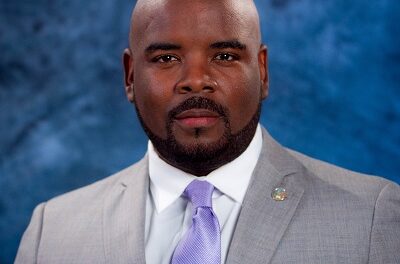Superstorm Sandy reminds us to look to lessons from the recent past to inform disaster preparedness for the future. How ready are the healthcare facilities in South Florida? What lessons can be learned from the problems experienced by several hospitals in the NE?
 Wayne K. Ferdinand, M.P.H., CHSP
Wayne K. Ferdinand, M.P.H., CHSPAssociate Administrator for the Division of Public Safety
Jackson Health System
Jackson Health System is fully prepared to respond to a natural disaster or other emergency that could affect its facilities. Throughout the year, Jackson public safety officials thoroughly plan and prepare for these types of events, regularly reviewing and revising emergency response policies and procedures.
The first step Jackson takes to prepare is to implement a Hazard Vulnerability Analysis (HVA), which is required of Joint Commission accredited facilities to identify potential emergencies that could affect the health system’s ability to provide the necessary services to our patients. Written emergency response policies and procedures are regularly reviewed at Jackson facilities on various situations, including tornado and severe weather, failure/loss of electrical power, patient evacuation and relocation and hurricane response.
Any emergency management decisions made during a disaster at Jackson is based on the Hospital Incident Command System (HICS), a management framework that consists of an organizational chart listing titles and names of employees assuming specific emergency command posts, tasks and responsibilities. The Incident Commander – usually a senior hospital administrator – has the overall responsibility for managing the emergency incident.
In the event of an emergency or severe weather scenario, such as a hurricane, we work closely with Miami-Dade County’s Emergency Operations Center (EOC) to determine if evacuations are necessary. If the threat is severe enough, a decision may be made to move patients and staff to mobile medical facilities, alternate medical treatment sites or surge hospitals.
We are committed to being prepared for any and all emergency situations. Throughout the year, table-top exercises, emergency preparedness drills and critical infrastructure assessments are performed. Pre-hurricane mitigation activities are also conducted at Jackson facilities, including installing hurricane impact resistant screens, shutters and windows, inspecting and repairing roofs, updating telephone rosters, developing hurricane supply lists and pre-purchasing orders when necessary and confirming transfer agreements with our medical facilities.
 Kelly Keys
Kelly KeysManager, Broward Health’s Emergency Preparedness
As manager of Broward Health’s Emergency Preparedness, I watched the havoc caused by Hurricane Sandy, sympathizing with those who lost so much. The scenes prompted me to assess how Broward Health would react in a similar situation.
Broward Health is unique because it is one of a few health systems with an emergency preparedness department. The department enables us to have emergency preparedness coordinators in our hospitals during a storm or crisis situation, and it ensures the annual creation of a comprehensive emergency plan.
Communication with employees and the public is strong prior to a storm with many communication vehicles such as the Internet and telecommunications. However, storm surge and winds would mean a loss of communication. So, Broward Health hospitals are outfitted with 800MHz radios (used by fire, law enforcement, etc.), and we always have a representative in county emergency operation centers during crises.
One thing I personally observed during Hurricane Sandy was the role social media played in information dissemination. My mom lives in Long Beach, and the city was getting its information almost exclusively from Facebook. Because of this, Broward Health is evaluating how to enhance its social media presence for emergency communication.
We also witnessed how the northeast wasn’t prepared for water intrusion, loss of electricity and limited drinking water. Realizing similar threats to its system, Broward Health has secured portable filtration systems, moveable refrigerators for pharmaceuticals and backed up generators. To stay operational, we need electricity and running water.
Finally, Broward Health realizes the impact crises have on employees’ personal lives. We encourage contingency plans for home life, and understand that staff might not want to leave loved ones and pets post-storm. So, we are coordinating efforts with local veterinarians and caregiver groups to ensure staff is able to come to work knowing their families are safe.
 Greg Dalton
Greg Dalton Director of Facilities and Construction
St. Mary’s Medical Center
Greg Dalton has held the position of Director of Facilities and Construction at St. Mary’s Medical Center since 1996. In his role, Dalton is responsible for facilitating contract plans, as well as coordinating and managing the construction projects of the hospital, which is situated on 97 acres of land.
On a daily basis, Dalton overseas the upkeep, construction and maintenance of the hospital to ensure the hospital maintains its refined appearance. In addition, he has created a preventive maintenance program that is continually updated to meet the trends of technology in healthcare. His goal is to keep St. Mary’s Medical Center safe and polished.
Prior to being the Director of Facilities at St. Mary’s Medical Center, Dalton served as the Contract Supervisor for Housekeeping. Previously, Dalton held various positions within the Marriott Corporation.

























